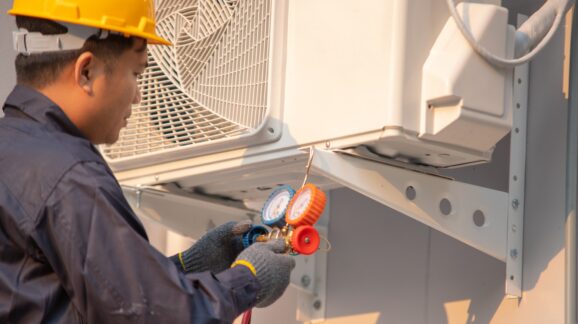America’s Heat Pump Emergency

Photo Credit: Getty
The Biden administration announced it will use the Defense Production Act (DPA)—a Korean War-era statute allowing presidents to demand American industry increase production of anything essential for the national defense but in short supply—to address the nation’s shortage of … electric heat pumps?
It is unlikely to work, often because the administration is largely responsible for the shortages in the first place. For example, the attempt to use the DPA to fight the baby formula shortage makes little sense, since the problem is due in significant part to bureaucratic bungling by the Food and Drug Administration that constrained supplies. The same is true of the effort to increase domestic output of the critical minerals needed to make the electric vehicles the administration favors. It is hard to see how invoking the DPA can expand supplies of these minerals when Biden’s environmental regulators are busy blocking many new mines.
It’s a different story with electric heat pumps. There are no real shortages; the only “problem” is that many homeowners don’t want them. Exactly why the president calls them “essential to the national defense” and what he expects DPA to do about it is hard to grasp.
Electric heat pumps are air conditioners that can work in reverse and heat your home in the winter. Though pricey, they generally work well in areas with mild winters, but not in those with cold ones. Millions of homeowners prefer an electric air conditioner and a separate natural gas furnace, and with good reason.
But electric heat pumps are very much in fashion with environmentalists. They see them as part of the climate agenda, and in particular the push to end the use of natural gas and electrify everything. This includes all home appliances that come in electric or natural gas versions, like water heaters, ovens, and heating systems.
Even if electricity was plentiful and reliable, total electrification would end up costing many homeowners more on energy bills as compared to a rational mix of electricity and natural gas.
There are also warning signs that putting all of a household’s energy needs in one basket—electricity running every major appliance and an electric vehicle to boot—would be a dangerous thing to do at this time. Electric grid operators warn of growing risks of blackouts this summer, due in large part to the replacement of reliable coal with intermittent wind and solar, another part of the climate agenda.
Greater electrification would add even more to demand and heighten these risks. It would also make blackouts that much more of a hardship, as everything that uses energy would come to a halt.